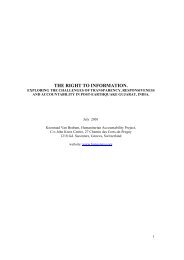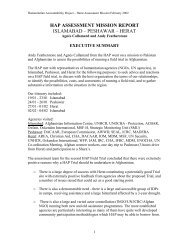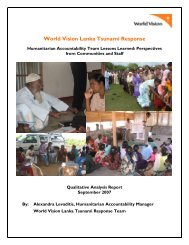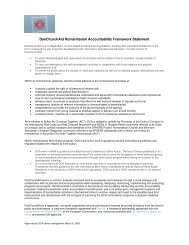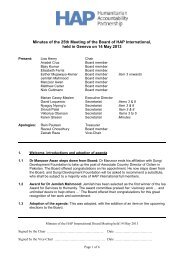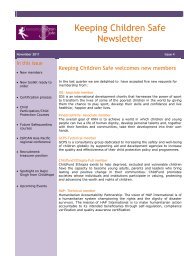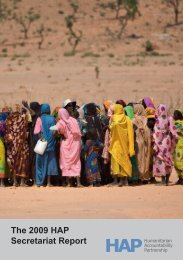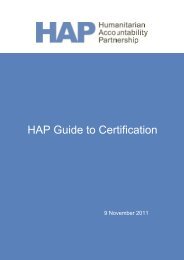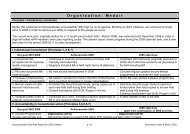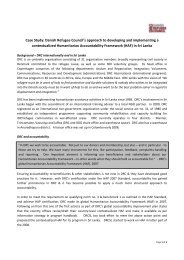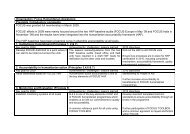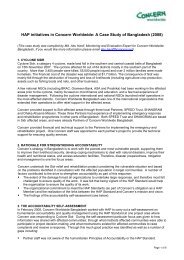Chapter Four - HAP International
Chapter Four - HAP International
Chapter Four - HAP International
You also want an ePaper? Increase the reach of your titles
YUMPU automatically turns print PDFs into web optimized ePapers that Google loves.
THE 2008 HUMANITARIAN ACCOUNTABILITY REPORT<br />
17. Save the Children UK<br />
as project evaluations will look at the<br />
effectiveness of the complaints handling<br />
mechanisms<br />
well as practical capacities on how to structure a<br />
feedback-based system, and how to resource it.<br />
Challenges: Maintaining complaints handling<br />
mechanisms in fast-changing environments is quite<br />
difficult, without prior preparedness work. In<br />
Myanmar, we tested a few feedback mechanisms<br />
that failed because, by the time the mechanism was<br />
established, it became irrelevant.<br />
Lessons learned: From the Myanmar experience we<br />
have learned that complaints procedures are difficult<br />
to set up in the first and initial phases of an<br />
emergency response. They require a stable<br />
environment and time to assure quality. We found<br />
that early response is a more relevant phase to put<br />
in place formal official feedback mechanisms, while<br />
informal methods of integrating feedback into daily<br />
work are key to ensure relevance of the response at<br />
early phases.<br />
Case Study Example: Good practice in humanitarian accountability and quality management – Summary version<br />
A case study from Bangladesh (to be made available on the <strong>HAP</strong> website) provides a detailed description of steps and procedures that the Bangladesh<br />
programme teams put in place to ensure beneficiary participation in all phases of the programme. The programme developed the capacity of the community<br />
to engage, simultaneously putting in place systems that enable programme staff benefit from the feedback of beneficiaries in making the programme more<br />
accountable to their needs. The case study is a good example of innovation, and includes a few valuable lessons that were learned from this experience.<br />
18. Sungi Development Foundation, Pakistan<br />
Introductory comments: As a rights-based organisation, Sungi endeavours to make itself accountable to partner communities as well as donors and all<br />
those who support its programmes. Sungi acknowledges the fact that accountability is a key element for a humanitarian and development partnership, and<br />
the relationship between Sungi and partner community is such that they both share due responsibility and are accountable to each other. This had been<br />
integrated in Sungi’s approach, which is based on the principles of participation and empowerment. Involvement of men and women in participatory planning<br />
and implementation processes is ensured and communities are empowered.<br />
112<br />
137




